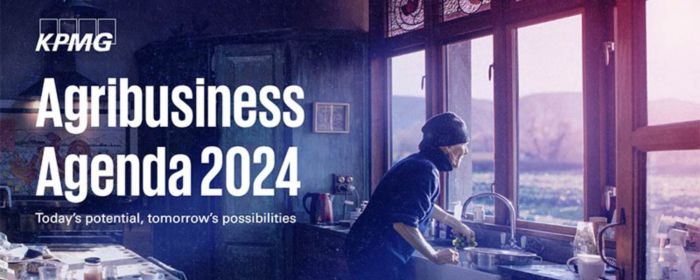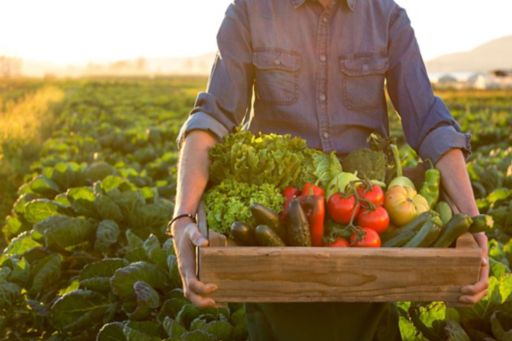Welcome to our latest issue of Field Notes, a summary of Agribusiness news from across the sector, prepared by the KPMG Agribusiness network.
International updates
EU
The European Commission (EU) warns that the development of a vaccine to eradicate African swine fever, which continues to threaten pig farming, remains difficult.
The outbreak in Italy, along with the struggles to develop a vaccine at the EU level, has prompted transport restrictions and culling measures to contain the spread of the disease.
United Kingdom
New Zealand
- Lamb and beef prices have quickly increased to levels well above seasonal averages due to a shortage of finished livestock. In the last month, procurement pressures have caused increases in lamb slaughter prices of 40- 45c per kg and cattle slaughter prices of 25-75c per kg
- New Zealand Cabinet has decided to opt out of the joint Australia-New Zealand standards on infant formula labelling after their review request was denied. The standard restricts the amount of promotional material on packaging. Instead, New Zealand will implement its own standard over the next five years.
- A new nutrient management decision making tool was launched for the vegetable farming industry. The Sustainable Vegetable Systems tool integrates nitrogen planning with soil testing to provide growers with real-time data to help meet sustainability and regulatory requirements.
- Northland's port company is appealing a decision to refuse consent for a major expansion. The 12-hectare reclamation and 250-metre wharf extension were rejected due to adverse effects on the cultural values of tāngata whenua and the impact on public access to the coast.
US
- The American government has announced a US $7.3 billion (NZ $12 billion) investment in 16 rural electric cooperatives, marking the largest federal investment in rural electrification. The initiative will generate 10 gigawatts of clean energy and reduce greenhouse gas emissions by 43.7 million tonnes annually, providing cleaner and more affordable energy to around 5 million rural households, farms, and businesses.
Headlines
CattleEye introduces ‘Body Condition Scoring’ tech for dairy cows
[8 August, FoodBev Media]
Northern Ireland-based company CattleEye has launched a Body Condition Scoring (BCS) system for dairy cows using an artificial intelligence (AI) system. CattleEye was acquired by the German corporation GEA Group, which then developed the technology to integrate it into its DairyNet portfolio. It uses a security camera and AI to assess the cows' body condition as they walk past the camera, providing insights to farmers. This system aims to help optimise rations, reduce metabolic diseases, and reduce greenhouse gas emissions, ultimately enhancing dairy farm profitability.
Farming: Foot-and-mouth outbreak could cost $14.3b in lost export revenue every year
[6 September, The Country]
Recent analysis from the New Zealand Institute of Economic Research indicates that an outbreak of foot-and-mouth disease would cost New Zealand NZ $14.3 billion in lost export revenue annually. The Ministry for Primary Industries has proposed three management options: emergency short-term containment through vaccination; managing the outbreak over a longer period or living with the disease. If an outbreak was to occur, The Minister for Biosecurity, Andrew Hoggard, has endorsed the need for urgent eradication through emergency vaccination, where appropriate. This approach would take 10 months to eradicate the disease, incurring an estimated NZ $1.9 billion in operating costs and compensation, with a one-time $8.4 billion impact on the economy.
Lab-Grown Cotton Startup Galy Closes $33M Series B Round Led by Bill Gates
[5 September, Green Queen]
Galy, a Boston-based startup, has secured over US$65 million (NZ$103 million) in funding, including $33 million (NZ$53 million) in a Series B investment round led by Bill Gates’ Breakthrough Energy Ventures. Galy’s mission is to eliminate cotton's water consumption by growing it in labs using a cellular agriculture platform. Galy has developed a lab-grown cotton production method that is 10 times faster and 500 times more productive than traditional farming. It also uses 99% less water, takes up 97% less land, and emits 77% less CO2. Their approach has support from major investors like H&M Group and Inditex, enabling Galy to advance its sustainable material to pre-industrial quality and scale
Spotlight stories
Industry Good Spotlight
The Common Ground – A place to solve food & fibre’s wicked problems
[10 September]
Earlier this week, AGMARDT and KPMG released The Common Ground – a proposed collaboration platform concept to drive trust and collaborative behaviour across the food & fibre industry good system. Based on the collaborative thought leadership report “Are Industry Good Organisations Good for Industry?” - the proposal is intended to stimulate debate about how we set-up future generations to solve ‘wicked’ problems and realise opportunities collectively. It explores the key constraints of the status quo system and offers The Common Ground – a platform concept to limit duplication, form Communities of Action on sector-wide issues and embed trust and collaboration in the sector for generations to come. Please visit “The Common Ground: website to learn more and download the full report.
Labeling Regulation Spotlight
Scrutiny of Meat Labels Like Grass-Fed Misses Green Expectations
[5 September, Bloomberg Law]
The United States Department of Agriculture has issued new guidance for terms like "grass-fed" and "free-range" in meat and poultry marketing. They are emphasising the need for robust documentation and third-party certifications to support environmental and animal-raising claims. The guidance aims to ensure transparency in labelling and to maintain consumer trust. Sustainability activists are not satisfied, expressing concerns about potential greenwashing and the need for clearer guidance. There is also debate about the effectiveness of third-party certifiers and their ability to ensure sustainability and animal welfare
Agri Business Agenda 2024
The 2024 KPMG Agribusiness Agenda, titled 'Today’s potential, tomorrow’s possibilities', presents the findings from the annual KPMG Agribusiness Leaders Priority Survey, alongside insights from over 150 food and fibre industry leaders who have contributed their insights and perspectives on the pressing issues facing the sector.
Get in touch
Interested in delving deeper into the latest insights on the agri-food industry? Don't hesitate to get in touch with our team of industry experts.
Contact Tom McEvoy, Head of Agribusiness for an initial conversation; we'd be delighted to hear from you.
Tom McEvoy
Partner, Head of Food & Agribusiness
KPMG in Ireland
Discover more in Agribusiness
4 Results
Nothing found


